
James M. Zumel Dumlao
@jamesmzd.bsky.social
PhD Candidate at the University of Michigan School of Information :: Knowledge/Cultural Production, Science of Science :: he/him/his
https://jamesmzd.github.io/
https://jamesmzd.github.io/
Private information? Many countries had lockdowns and travel restrictions in 2020 and 2021 due to the COVID-19 pandemic. We use this period as a negative shock to reviewers' information from seminars and conferences. The same-country preference was only slightly weaker during this period.

August 14, 2025 at 5:55 PM
Private information? Many countries had lockdowns and travel restrictions in 2020 and 2021 due to the COVID-19 pandemic. We use this period as a negative shock to reviewers' information from seminars and conferences. The same-country preference was only slightly weaker during this period.
Identity-based bias? A quasi-random policy rollout across journals of voluntary double-anonymization enabled an instrumental variables analysis. Hiding author identity did not reduce reviewer country homophily.

August 14, 2025 at 5:55 PM
Identity-based bias? A quasi-random policy rollout across journals of voluntary double-anonymization enabled an instrumental variables analysis. Hiding author identity did not reduce reviewer country homophily.
MAIN FINDINGS 🔎
1) Peer reviewers from the corresponding author's country were ~5pp more likely to recommend publication than other reviewers for the same manuscript.
2) Corr. authors' likelihood of having a same-country reviewer was highest for those in countries well-represented among reviewers.
1) Peer reviewers from the corresponding author's country were ~5pp more likely to recommend publication than other reviewers for the same manuscript.
2) Corr. authors' likelihood of having a same-country reviewer was highest for those in countries well-represented among reviewers.


August 14, 2025 at 5:55 PM
MAIN FINDINGS 🔎
1) Peer reviewers from the corresponding author's country were ~5pp more likely to recommend publication than other reviewers for the same manuscript.
2) Corr. authors' likelihood of having a same-country reviewer was highest for those in countries well-represented among reviewers.
1) Peer reviewers from the corresponding author's country were ~5pp more likely to recommend publication than other reviewers for the same manuscript.
2) Corr. authors' likelihood of having a same-country reviewer was highest for those in countries well-represented among reviewers.
Now published at PNAS ‼️ w/ @innovation.bsky.social
How does peer reviewer diversity affect fairness in peer review and the direction of published science? We find a "geographical representation bias" in 60 STEM journals published by @ioppublishing.bsky.social.
www.pnas.org/doi/10.1073/...
How does peer reviewer diversity affect fairness in peer review and the direction of published science? We find a "geographical representation bias" in 60 STEM journals published by @ioppublishing.bsky.social.
www.pnas.org/doi/10.1073/...

August 14, 2025 at 5:55 PM
Now published at PNAS ‼️ w/ @innovation.bsky.social
How does peer reviewer diversity affect fairness in peer review and the direction of published science? We find a "geographical representation bias" in 60 STEM journals published by @ioppublishing.bsky.social.
www.pnas.org/doi/10.1073/...
How does peer reviewer diversity affect fairness in peer review and the direction of published science? We find a "geographical representation bias" in 60 STEM journals published by @ioppublishing.bsky.social.
www.pnas.org/doi/10.1073/...
Additional Findings
1. "Learning effect" from peer reviewing is stronger for reviewers closer in geographic and intellectual distance (same-country and abstract cosine similarity)
2. Reviewing from a greater distance brings citation likelihood close to non-reviewers of a closer distance
1. "Learning effect" from peer reviewing is stronger for reviewers closer in geographic and intellectual distance (same-country and abstract cosine similarity)
2. Reviewing from a greater distance brings citation likelihood close to non-reviewers of a closer distance
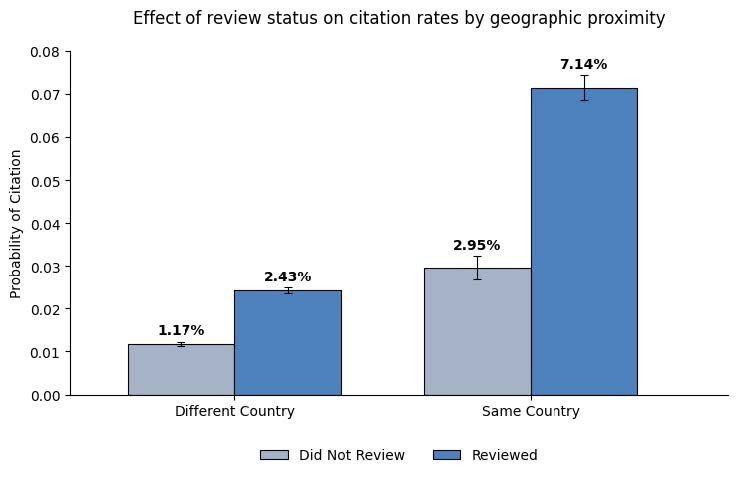
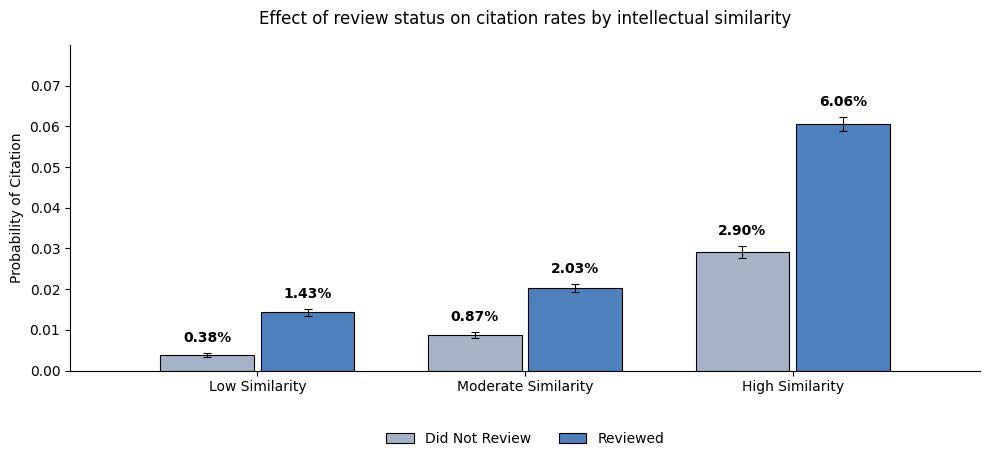
July 6, 2025 at 4:25 PM
Additional Findings
1. "Learning effect" from peer reviewing is stronger for reviewers closer in geographic and intellectual distance (same-country and abstract cosine similarity)
2. Reviewing from a greater distance brings citation likelihood close to non-reviewers of a closer distance
1. "Learning effect" from peer reviewing is stronger for reviewers closer in geographic and intellectual distance (same-country and abstract cosine similarity)
2. Reviewing from a greater distance brings citation likelihood close to non-reviewers of a closer distance
🏮NEW WORKING PAPER ALERT🏮
Scientists collectively spend tens of millions of hours peer reviewing each year, mostly for no $$. Why??
In new work w/ Charles Ayoubi and @innovation.bsky.social, we observe a private benefit for participating in evaluation: 💡💡Learning💡💡
Scientists collectively spend tens of millions of hours peer reviewing each year, mostly for no $$. Why??
In new work w/ Charles Ayoubi and @innovation.bsky.social, we observe a private benefit for participating in evaluation: 💡💡Learning💡💡
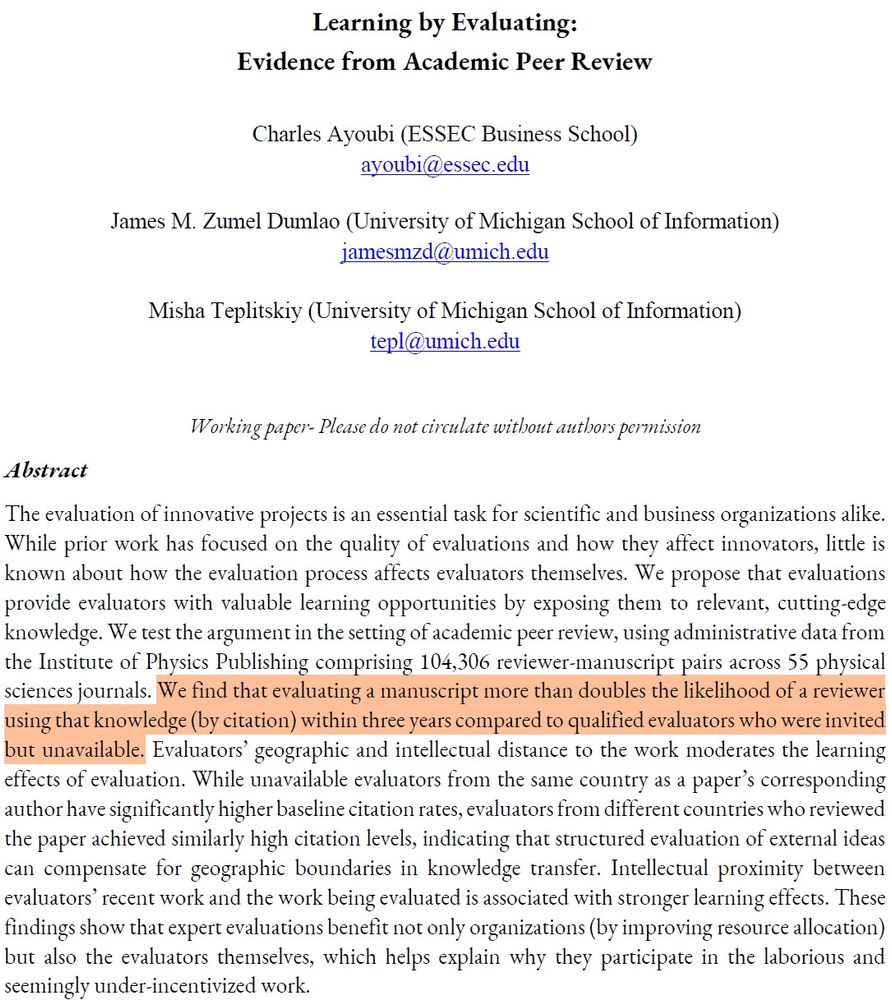
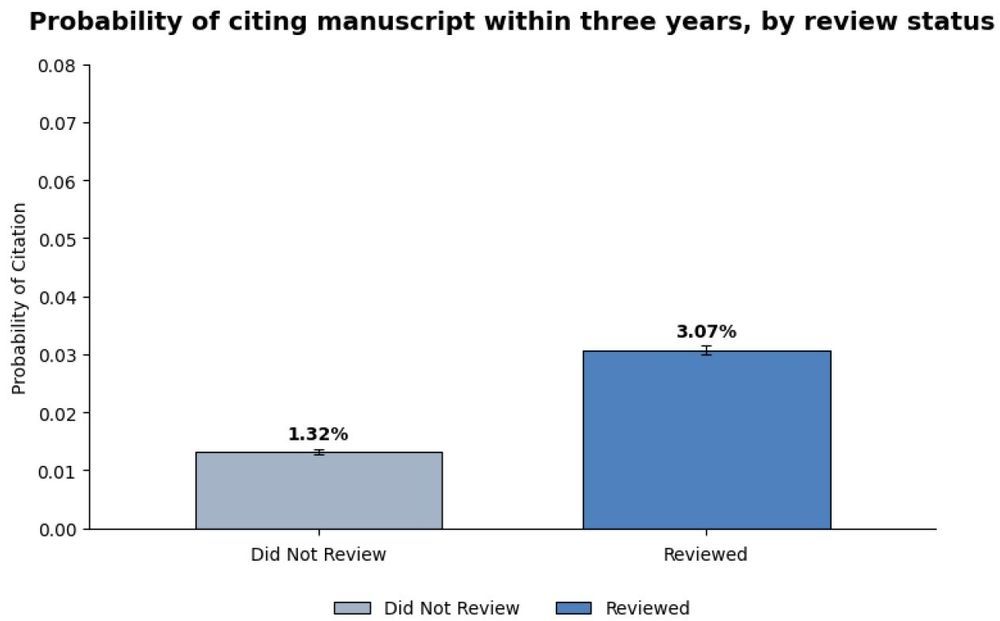
July 6, 2025 at 4:25 PM
🏮NEW WORKING PAPER ALERT🏮
Scientists collectively spend tens of millions of hours peer reviewing each year, mostly for no $$. Why??
In new work w/ Charles Ayoubi and @innovation.bsky.social, we observe a private benefit for participating in evaluation: 💡💡Learning💡💡
Scientists collectively spend tens of millions of hours peer reviewing each year, mostly for no $$. Why??
In new work w/ Charles Ayoubi and @innovation.bsky.social, we observe a private benefit for participating in evaluation: 💡💡Learning💡💡
I’m officially an STSer!! Very excited to continue engaging w the work here at #4SHonolulu and creating/bridging convos w/in #ScienceofScience
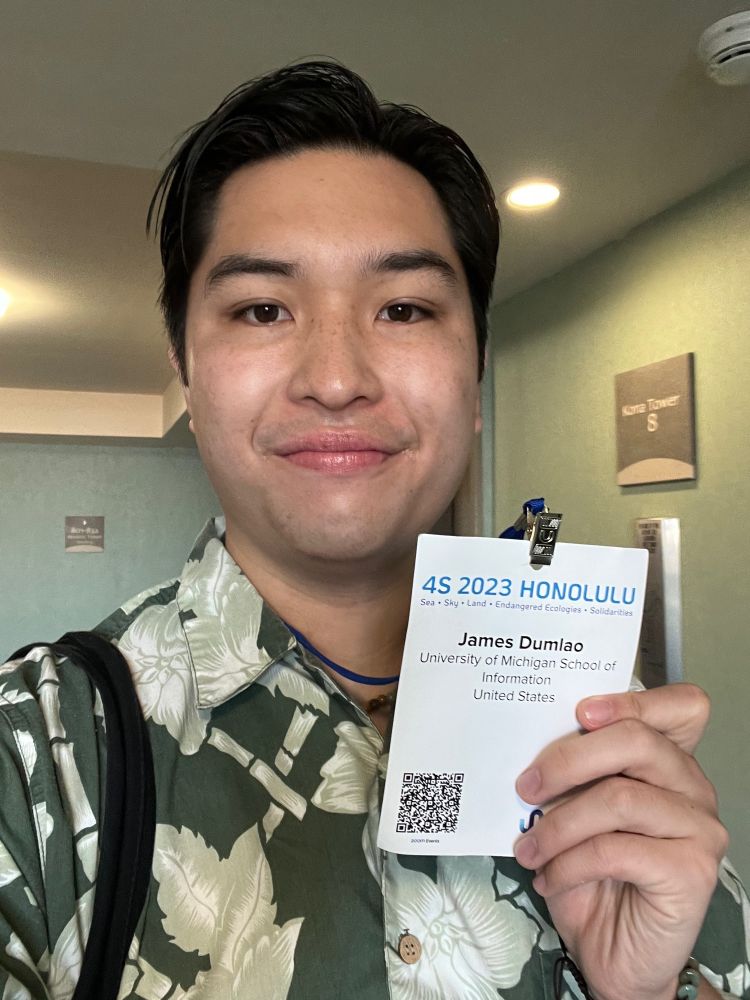
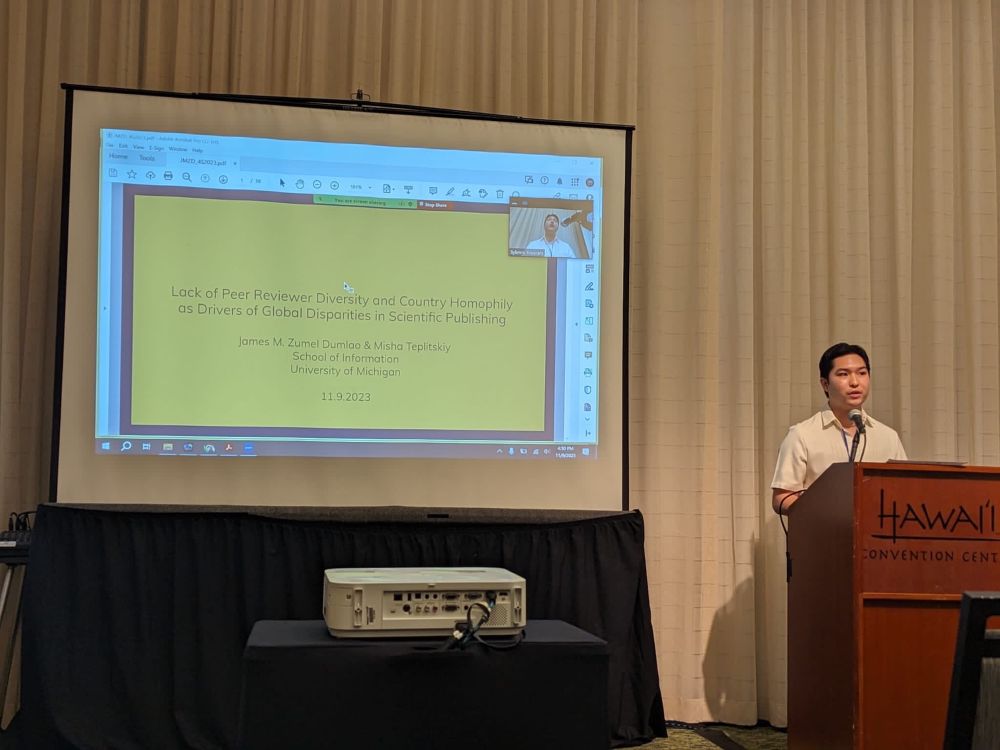
November 11, 2023 at 8:25 PM
I’m officially an STSer!! Very excited to continue engaging w the work here at #4SHonolulu and creating/bridging convos w/in #ScienceofScience


